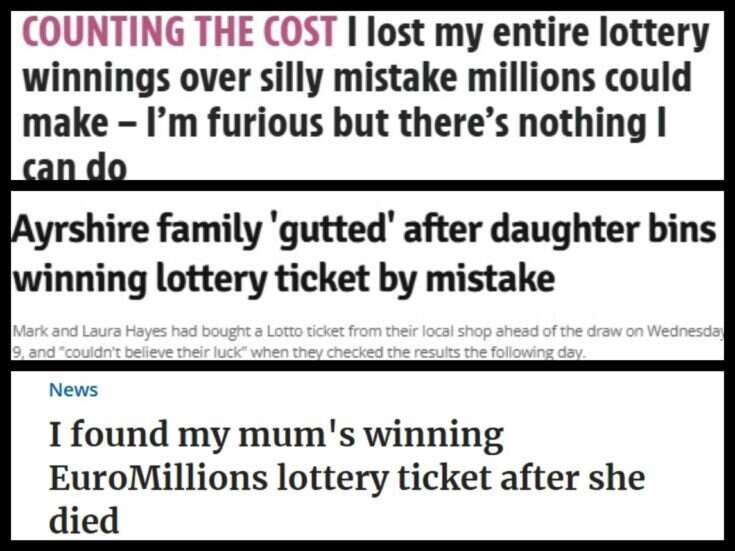|
The case of the disappearing lottery winners | Why brand safety is a con
And why publishers are grumpy with Google about the arbitrary rollout of a search change that has seen whole sections of websites scrapped
Welcome to this week’s Press Gazette Future of Media newsletter on Thursday, 26 June.
***The extended Future of Media Awards deadline is midnight tonight***
This event celebrates the websites, apps, podcasts, newsletters and commercial strategies which are lighting the way to a profitable future for journalism in the digital age.
When PR agency Signal The News tracked down three lottery and scratchcard winners who had lost winning tickets it hit the jackpot.
The case studies prompted a bonanza of national press coverage and a flurry of valuable website links back from news websites to their client, an online casino.
Press Gazette decided to take a close look at the unlucky lottery winner stories when we discovered that attempts had been made to find the people concerned and tell them they could in fact still claim their wins. Weirdly they were unresponsive to email enquiries.
Two of the winners look remarkably similar, despite having different names and living in different parts of the company.
It all smells a bit fishy.
As I discovered before with the case of Barbara Santini, probably the UK's most widely quoted psychologist, it is impossible to prove someone does not exist.
So you will have to make up your own mind about the curious case of the disappearing lottery winners.
But it is undoubtedly true that there is a lucrative trade to be had sending content to publishers in exchange for valuable SEO links.
Today we also hear how publishers are getting on the front foot when it comes to the great con that is brand safety, which has cost the news industry billions.
I am baffled why any financial institution would appear on Facebook given the platform is riddled with fraudulent adverts impersonating real people and companies to promote dodgy investment schemes.
Yet paid-for promotions for legitimate brands such as Fisher Investments, The Economist and RBC Brewin Dolphin appear in the same content feed as scam financial advice adverts which use trusted names to promote them.
And finally AOP managing director Richard Reeves writes exclusively for Press Gazette about the frustrations publishers are feeling dealing with arbitrary changes from Google which have cost them millions in revenue.
The lack of transparency or predictability from Google in the rollout of its site reputation abuse policy has made it impossible for publishers to make investment decisions.
It's another example of Google exercising careless power which (hopefully) will be tackled by regulators later this year.
***The extended Future of Media Awards deadline is midnight tonight***
This event celebrates the websites, apps, podcasts, newsletters and commercial strategies which are lighting the way to a profitable future for journalism in the digital age.
On Press Gazette
The PR agency, the publishers and the disappearing lottery winners
PR agency Signal the News threatened Press Gazette with an injunction if we published even a partial screenshot of stories arising from its work which have appeared in the Daily Mail, Metro, Daily Mirror, Daily Express, The Sun and elsewhere.
Brand safety: Why social is far more risky than news for marketers
“Consumers are not stupid. They understand that if you’re advertising next to an article that’s about Donald Trump, that doesn’t mean you endorse Donald Trump. It just means you’re supporting the journalists that are finding out the news about Donald Trump.”
Google’s site reputation abuse policy: the wrong solution to a real problem
“Google is correct in that site reputation abuse can undermine the search experience, but its enforcement dictates commercial and hiring decisions that should be the sole domain of publishers, such as when and how freelancers are hired and what work they do.”
Outsourcing your content licensing: Five reasons why (promoted)
Working with a content licensing agency gives publishers time back to focus on content creation while maximising revenue generation.

